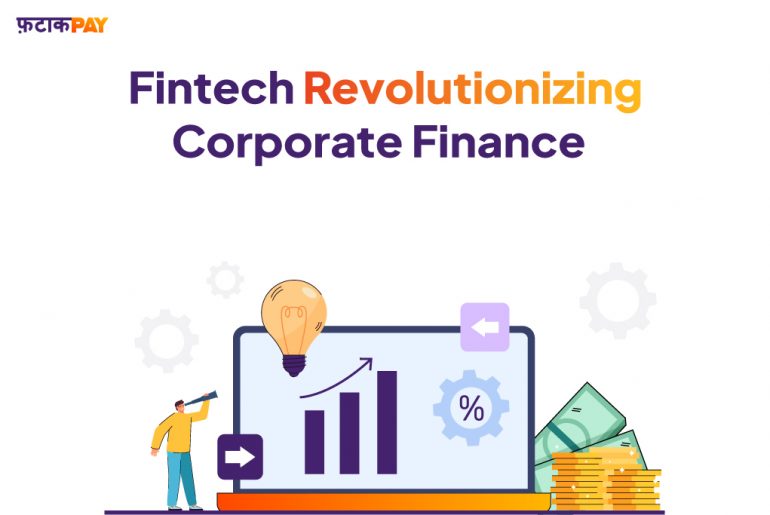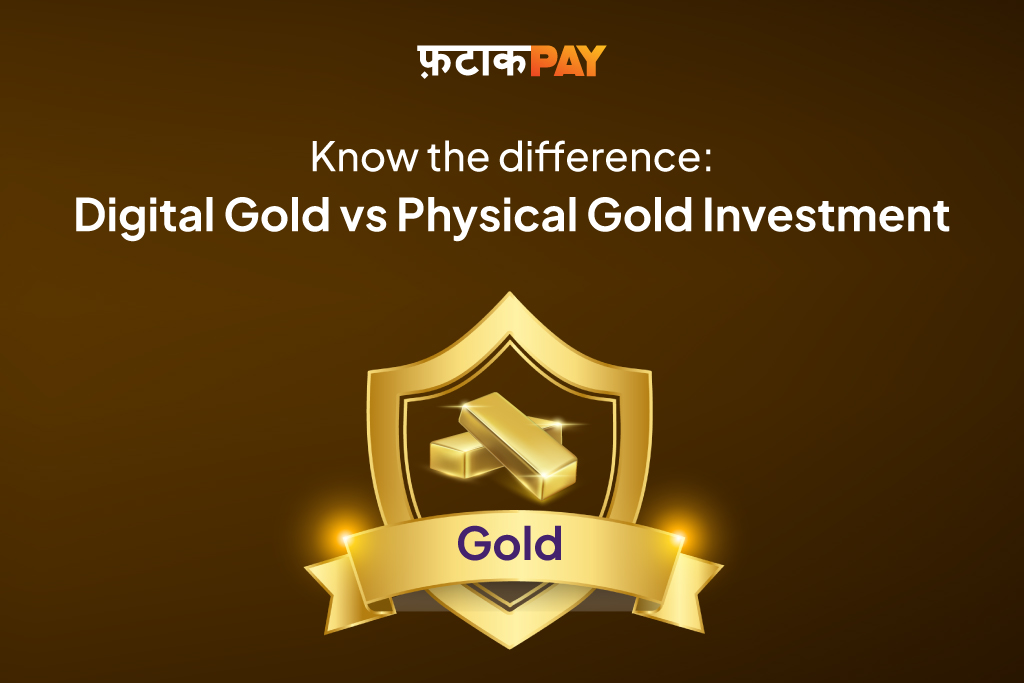What Is Financial Technology, aka Fintech?
Nowadays, whenever you go into the market, you don’t need to carry any extra cash, and because we have Gpay and Paytm with us, technology automates and improves financial services, and that’s what we call Fintech. It includes specialized software and algorithms used on computers and smartphones to help companies, business owners, and consumers manage their financial operations.
Initially, Established financial institutions used to use Fintech, but from 2018 onwards, there has been a shift towards consumer-oriented services.
Today, Fintech covers a range of sectors, including education, retail banking, fundraising, and investment management. While cryptocurrencies like Bitcoin get a lot of attention, the traditional banking industry still dominates the market.
Fintech’s Impact on the World of Business:
Since Fintech is very convenient, you can now easily take loans online; you can quickly get credit or debit money online from just the internet and mobile so now Fintech started to revolutionize the financial services industry in the past 15 years by disrupting traditional business models and opening up new opportunities for you or businesses. While technology has been used in finance since the 1950s and 1960s, it was mainly limited to backend operations until the mid-1990s.
With the rise of the internet in the 90s, we saw the first signs of consumer-facing Fintech. It started with checking bank account balances online but evolved rapidly with the advent of smartphones. Today, Fintech has made significant progress and impacts various areas, each with its positives and negatives.
Payments and Money Transfers:
With the advent of digital banking, mobile wallets, payment apps, and mobile payments, making payments and conducting money transfers have become more practical, cost-effective, and convenient.
Lending:
New ways of lending money, such as peer-to-peer platforms and alternative credit scoring, have provided more access to funding for small businesses and individuals who were previously unable to get loans from traditional banks.
FatakPay is a fintech company that provides instant loans online; you can sit in your home, chilling and apply for a loan.
Personal Finance:
Budgeting apps and robo-advisors have made retirement planning accessible and cheaper for everyone.
Blockchain and Cryptocurrencies:
Digital currencies and blockchain tech can transform the economy by improving transparency, accessibility, automation, and reducing costs.
Insurtech and Real Estate Tech:
One more thing that is on the rise in artificial intelligence is that a lot of work is now possible to complete in minutes with the help of AI. Advanced data analytics and AI-powered solutions are transforming the insurance and real estate sectors, making them more efficient and opening up new investment opportunities while focusing on customer needs.
Any company can become a Fintech company by providing financing and payment solutions or managing their financial needs better. Fintech is not limited to finance companies; it’s at the core of many other major companies, like Uber, that rely on payment and scheduling services. The Impact and potential of Fintech can be seen across various industries.
Fin-tech startups VS traditional financial institutions:
How will you feel when you are a top player in your team but suddenly a rookie enters the team and starts to gain all the fame? In this field, big financial institutions perceived Fintech startups as rivals, and there was a clear division between them. However, recent developments indicate that this situation changes due to a growing inclination towards collaboration.
This shift is because startups are adept at innovating but need more means to reach a wider audience. Conversely, financial institutions have established brand names and greater consumer trust and can offer startups the distribution channels they need to expand.
They have good distribution skills, so a joint approach would benefit both parties, although there may be some difficulties in implementing such a structure.
For example, selling to large financial institutions or integration is a challenging process that requires a lot of time, effort, and approval from various teams, including cybersecurity, legal, regulatory, marketing, and strategy. Despite these challenges, the collaborative model will likely become more popular in the financial services industry, particularly Fintech.
Challenges faced by executives with Fintech-enabled innovation:
Keeping Up with Rapidly Changing Technologies:
As an executive in the financial services industry, you may face numerous challenges in keeping up-to-date with Fintech’s latest developments, constantly evolving and reshaping the industry and beyond.
Regulatory Compliance:
As a professional, it can be challenging for you to keep up with the latest trends and developments in the Fintech industry, with innovations and startups emerging almost daily.
Talent Management:
As an executive, you may face various challenges with Fintech-enabled innovation disruption. You may need to navigate complex and evolving regulations across different jurisdictions and business lines to ensure regulatory compliance and avoid legal pitfalls. It can be daunting, but with the proper knowledge and guidance, you can successfully overcome these challenges and ensure your organization’s growth and success.
Integrating Fintech Solutions into Existing Business Models:
To break into the fintech industry, you should know that skilled professionals like yourself are in high demand. Companies compete for top talent while upskilling their existing workforce to stay ahead. It’s a great time to consider a career in this exciting and rapidly growing field.
Balancing Innovation and Security:
As you integrate new Fintech solutions with legacy systems in your established organization, you may find it challenging to overcome this obstacle. However, as a professional, you must find ways to make it work.
Buy vs. Build Investment Considerations:
As a business owner, it’s important to balance innovation and security when adopting new Fintech solutions. This will help you ensure your data and customer information remain secure and protected from cyber threats and fraud.
To make sound judgments when responding to changing markets and consumer needs, you must develop solutions that meet such needs. This can be achieved by buying an existing solution (e.g., M&A of startups) or through in-house research and development. However, each approach requires specific analyses that you can only complete if you’re updated with the latest trends that are going on in the industry.
How do regulators interact with finance?
As someone involved in financial services or Fintech, you need to understand the role of regulation. While it can be challenging for regulators to keep up with the pace of innovation and the complexity of new technologies, it’s still crucial for entrepreneurs, investors, and executives in Fintech to understand the regulatory framework. This will ensure you operate within the law’s boundaries and avoid potential issues.
The Future of Fintech:
You may have noticed that fintech is always evolving, with new buzzwords and technologies constantly emerging. These innovations, such as Web 3.0, Insurtech, and Generative AI, can potentially transform financial services and other industries, including the ones you work in.
Data is also crucial in traditional finance and Fintech, where AI and machine learning analyze everything from transactions to economic data. However, it’s essential to use this data carefully to avoid introducing biases or infringing on privacy and access. Despite these concerns, these technologies can help you to reduce costs and improve access to financial services more equitably.
The Importance of Fintech Education:
Suppose you’re an executive in the finance industry. In that case, you may be interested to know that educational programs are available to help you keep up with the rapid changes Fintech brings.
Fintech program can provide you with valuable insights into the impact of Fintech on the financial services industry without requiring any technical background. This can foster creativity and innovation within your organization and ultimately help you succeed in this evolving industry.
Leveraging Fintech Innovation:
You need to keep up with the quick changes in financial technology (Fintech) to seize new opportunities for your business or personal goals. As an executive, you must learn and develop new skills to make the most of these changes. Education is essential in preparing you for the challenges and opportunities presented by Fintech. Keeping yourself updated and proactively acquiring the latest information and knowledge is crucial.
Programs like Future of Finance:
Remember that leveraging Fintech innovation can provide you with expert-led knowledge and skills from academic and practitioner perspectives to help you succeed in this dynamic field. Investing in education and staying ahead in Fintech is essential, so don’t hesitate to embrace the future of finance today.
Conclusion:
You may have noticed that fintech is revolutionizing not just the finance field but also other related fields. The future with fintech looks very bright, and everything is possible, from making small daily use payments to taking big loans and transactions. It has become such a prominent industry that it is now a new business.
About FatakPay:
FatakPay offers universal access to virtual credit facilities. You may access it on your phone and use it for both online and offline daily requirements. Payments are made easily using UPI/QR codes. With the ability to scan now, pay later, and have simple payback alternatives, the system offers a nearly cost-free, fast, transparent, and secure way to transact multilingually.
Click Here to Download the FatakPay app or Visit Our website.







